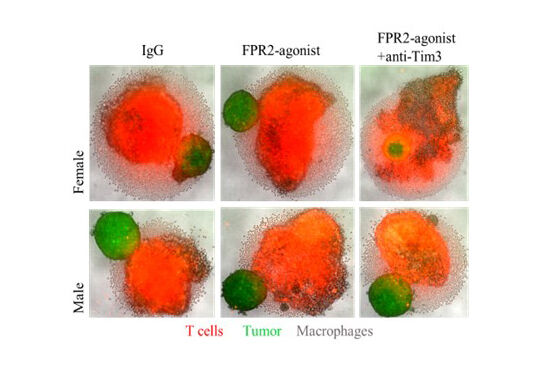Research line I: Studies of sexual immune dimorphism in the TME
Sexual dimorphism in cancer has been reported to cause different rates of cancer incidences and mortalities in males and females across several types of cancer. Unfortunately, there is still a knowledge gap about differences in sex-specific immune responses and how these contribute to the response to immunotherapy. The Tumor Immunology & Immunotherapy Group
aim to fill this knowledge gap.
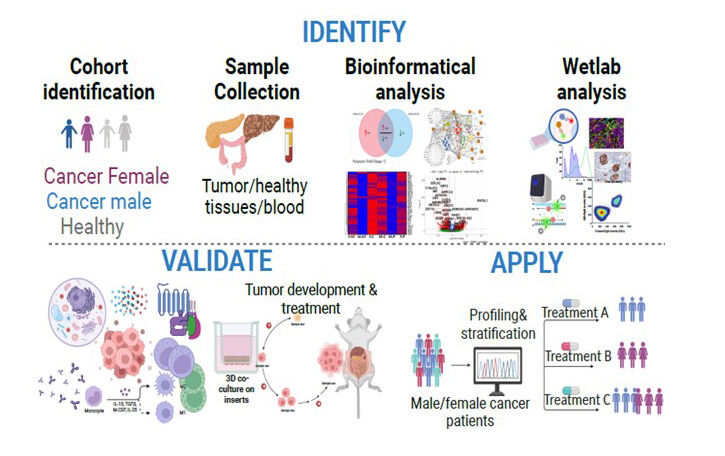
Project I
Studies of sexual immune dimorphism in the TME
In this project, we examine cancer and healthy tissue transcriptomic and proteomic profile to investigate regulatory networks and discover the immune response differences in tumor microenvironment (TME) in males and females using bioinformatic analysis. After filtering the candidate genes/proteins causing differences in tumor development biased by sex, we validate in the wet experiment setting crucial molecular mechanisms resulting in various immune compositions. Finally, we estimate the possible immune modulating drug treatments by targeting these candidate genes to provide sex-optimized immunotherapy treatment for cancer patients
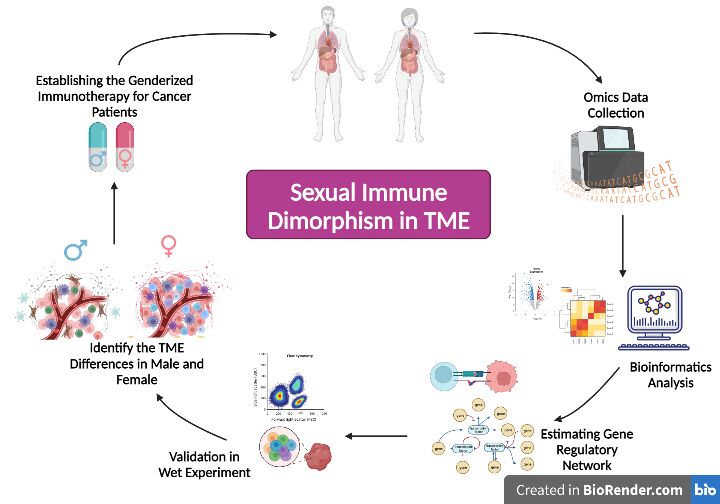
Project II
Identify soluble biomarkers in pacreatic cancer patients plasma biased by sex
In this project, we examine the plasma proteome of male and female pancreatic cancer patients using mass spectrometry. Distinct candidates are deeply investigated for immune cell behavior and tumor progression in our established artificial 3D tumor microenvironment (3D TME). Our first candidates to examine are the hormones and hormone-like neurotransmitters.
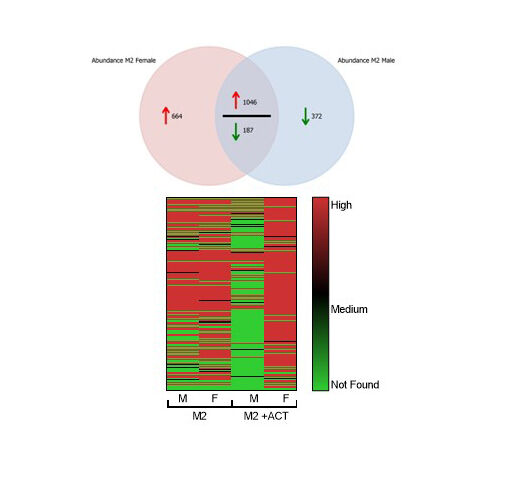
Project III
To determine whether autoimmune reactivity protects from or enhances cancer progression.
There is a link between autoimmune diseases and pancreas pathology/cancer, however, the underlying mechanisms remain unknown. As the risk for autoimmune disease is higher in women, and in contrast cancer incidence is higher in men, one of our questions is whether differences in immune reactivity towards self-antigens between women and men can explain sex-differences in cancer. In this project we are using the Swedish national registry to study the coincidence of autoimmune diseases and GI-tract cancer. Patients’ demographic data are extracted from the Swedish registry stratified by sex. Moreover, we are investigating the autoantigen reactivity profile in pancreatic cancer patients.
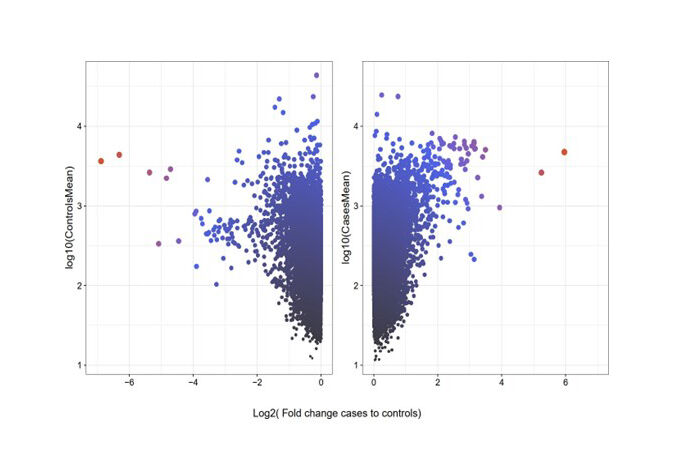
Project IV
Antibody targeting of suppressive myeloid cells for cancer immunotherapy
The goal for this project is to identify specific targets for tumor-associated macrophages and myeloid-derived suppressor cells to reprogram their suppressive nature and later develop target antibodies to relieve the anti-tumor activity of NK cells and T cells. Currently we are developing therapeutic antibody targeting G-coupled protein receptor FPR2 for women with GI-tract cancers.
